Wigan's hospitals boss recalls coronavirus pandemic and £60m investment as he says goodbye
and live on Freeview channel 276
Silas Nicholls became chief executive of Wrightington, Wigan and Leigh Teaching Hospitals NHS Foundation Trust (WWL) in October 2019, months before the outbreak.
He believes the way the trust dealt with the pandemic – and the decisions made to save lives – will be one of the ways he is remembered as he moves to Lancashire Teaching Hospitals NHS Foundation Trust, which runs Royal Preston and Chorley and South Ribble hospitals.
Advertisement
Hide AdAdvertisement
Hide AdMr Nicholls said: “I think leading the organisation through Covid is something I feel very proud of, but more proud of how our staff rose to the challenge, especially in the early months when there was so much uncertainty going into the unknown.”
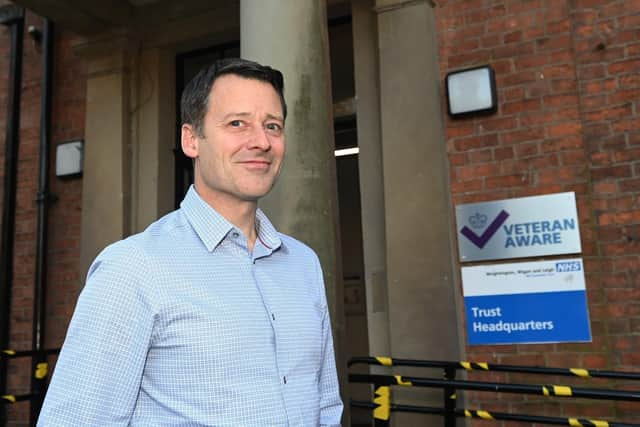

He recalled the trust’s decision to provide protective equipment (PPE) to all staff, rather than restricting it to certain roles.
"We were asking people to work in really difficult circumstances and had an absolute duty of care to ensure they felt safe at work,” he said.
Mr Nicholls described the efforts of staff to secure PPE as “outstanding”, with one employee sourcing 1,000 masks at a time when none were available in the UK. She then got several thousand more, which the trust shared with other hospitals.
Advertisement
Hide AdAdvertisement
Hide AdStudents in Wigan and other volunteers also made PPE, which he described as “amazing community spirit”.
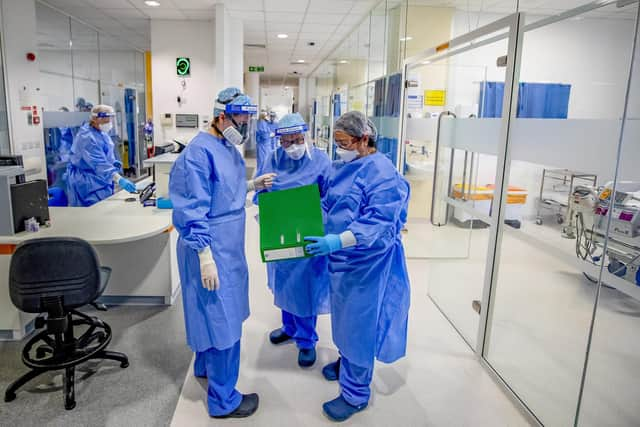

Mr Nicholls said: “It does show that once some of the bureaucratic strings are lifted on NHS hospitals, things can happen quickly.
"The Bryn unit, from making the decision that we needed extra facilities, within six weeks we had it operational and patients were being treated quickly.”
The Bryn ward was built from scratch and provided 50 beds for patients with coronavirus.
Advertisement
Hide AdAdvertisement
Hide AdMr Nicholls said: “I am of the firm belief that we saved lives on the back of that unit.”
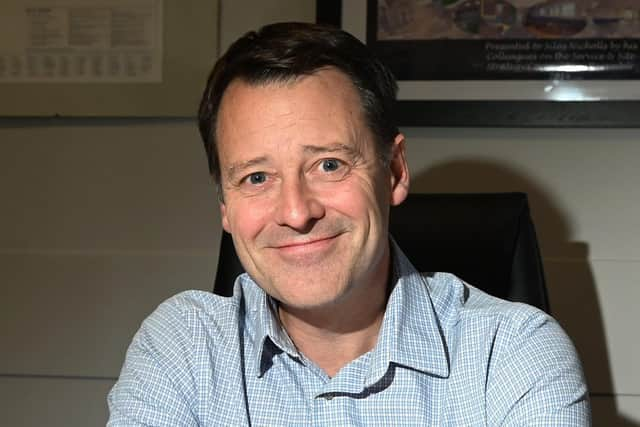

It has since been used as a respiratory ward and now houses same-day emergency care.
Mr Nicholls has been able to make many changes, with £60m secured to expand facilities over the past four years.
As well as the Bryn unit, new additions have included a community assessment unit for frail older patients and the Jean Heyes reablement unit at Leigh Infirmary.
Advertisement
Hide AdAdvertisement
Hide AdThe first patients have been seen at the new community diagnostic centre in Leigh and planning permission has been secured for a new theatre at Wrightington Hospital.
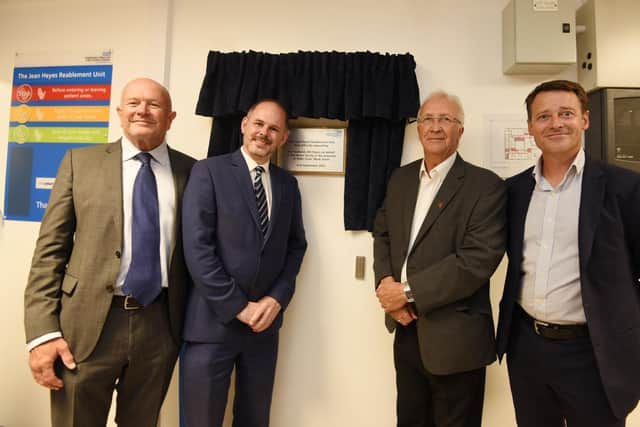

Funding has recently been secured to expand endoscopy, which will allow other services to be moved and A&E expanded, and there are still hopes for a multi-storey car park at Wigan Infirmary.
Mr Nicholls said: “Huge investment has gone in across all three sites, which I think is absolutely welcome.
"If we look at Wigan and Leigh as a place, we are the second biggest borough in Greater Manchester and we have one of the fastest, if not the fastest, ageing population in Greater Manchester, and we have all the challenges of deprivation and all that entails, so we need these resources.”
Advertisement
Hide AdAdvertisement
Hide AdExtra facilities require extra staff and WWL’s workforce has grown by around 1,000 during his tenure.
While there has been international recruitment, he hopes that in future the trust will become a university teaching hospital and have more home-grown talent working there.
It has been a difficult few years for the NHS, as it works to deal with the back-log caused by the pandemic and there has been industrial action throughout the year.
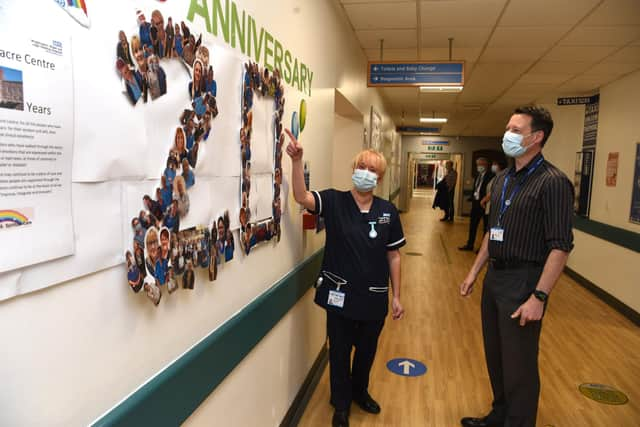

Mr Nicholls said a lot of work has been done to support employees’ well-being, including investment in psychological well-being services, help during the cost-of-living crisis and improving staff changing facilities. There were more than 600 entries to the trust’s STAR awards to recognise outstanding staff.
Advertisement
Hide AdAdvertisement
Hide AdThere are some things that Mr Nicholls thinks still need to be done to improve healthcare in Wigan.
He said: “I still think we haven’t got services right around urgent and emergency care and if I have one regret, it’s that we have too many instances of patients waiting too long in A&E. While the care is always safe and good from a clinical perspective, I have to admit the patient experience isn’t where I would like it to be.”
While improvements have been made to how patients are streamed at A&E, too many still face long waits to be seen or for a bed, if they need to be admitted.
Mr Nicholls said: “I do worry if we have, as a borough, commissioned the right number of beds, such as step-down beds. For example, Wigan borough decommissioned 40 intermediate care beds recently. Twenty of those beds have been reopened, but I would argue the criteria to get into those beds is quite restrictive, and there is still a gap of 20 beds. That feeds into the pressure faced in the hospital.”
Advertisement
Hide AdAdvertisement
Hide AdMr Nicholls, who has spent 30 years working for the NHS, will officially leave the trust on January 7.
He said: “I will miss Wigan and Leigh, the people that we serve and the people I have worked with. My association with the trust goes back a long time, because I was here originally as the deputy chief executive for five years and came back for four-and-a-bit years, so it’s a long time and you build up friendships. I will definitely miss the people.”
He thanked everyone who works at the trust for being “consistently brilliant” during his time in charge.
But he is looking forward to taking up the reins at Lancashire’s hospitals.
Advertisement
Hide AdAdvertisement
Hide Ad"The big thing there is they have some really good clinical services, really good staff and they are part of the new hospital building programme, which is a once-in-a-career opportunity to see through. I am looking forward to it,” he said.
"I live in Lancashire so it’s my local organisation really.”
Deputy chief executive Mary Fleming will become interim chief executive.